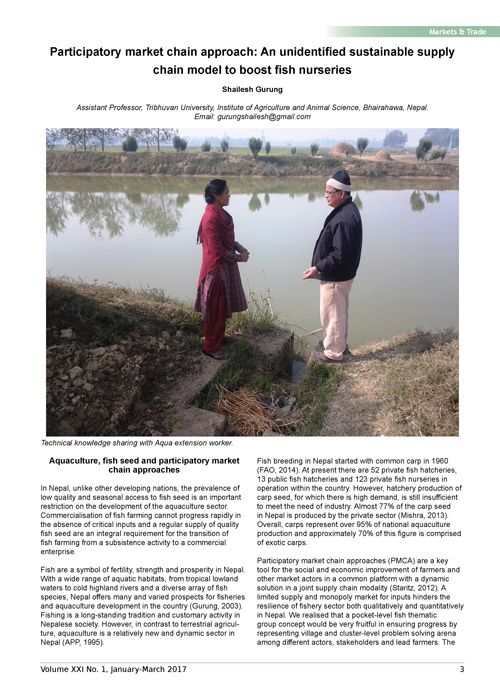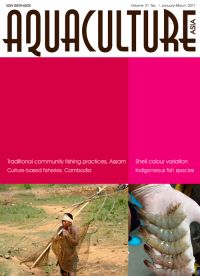Participatory market chain approach: An unidentified sustainable supply chain model to boost fish nurseries
15 March 2017 | Shailesh Gurung | 1394 Downloads | .pdf | 2.27 MB | Better management practices, Freshwater finfish, Gender, Hatchery and nursery, Inland aquaculture, Livelihoods, gender and social issues, Nepal
In Nepal the prevalence of low quality and seasonal access to fish seed is an important restriction on the development of the aquaculture sector. Commercialisation of fish farming cannot progress rapidly in the absence of critical inputs and a regular supply of quality fish seed are an integral requirement for the transition of fish farming from a subsistence activity to a commercial enterprise.
Participatory market chain approaches (PMCA) are a key tool for the social and economic improvement of farmers and other market actors in a common platform with a dynamic solution in a joint supply chain modality. A limited supply and monopoly market for inputs hinders the resilience of fishery sector both qualitatively and quantitatively in Nepal. We realised that a pocket-level fish thematic group concept would be very fruitful in ensuring progress by representing village and cluster-level problem solving arena among different actors, stakeholders and lead farmers. The approach has helped improve aquaculture development and farmer livelihoods in two districts of Nepal by improving seed supply where conditions had otherwise proven difficult.
The application of PCMA and a case study of a woman that transformed her farm into a successful aquaculture business and gained national recognition as a leading farmer are discussed.
Creative Commons Attribution.

